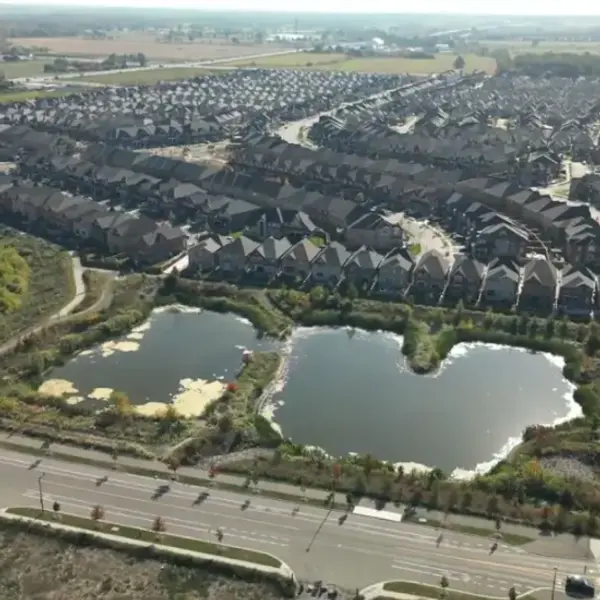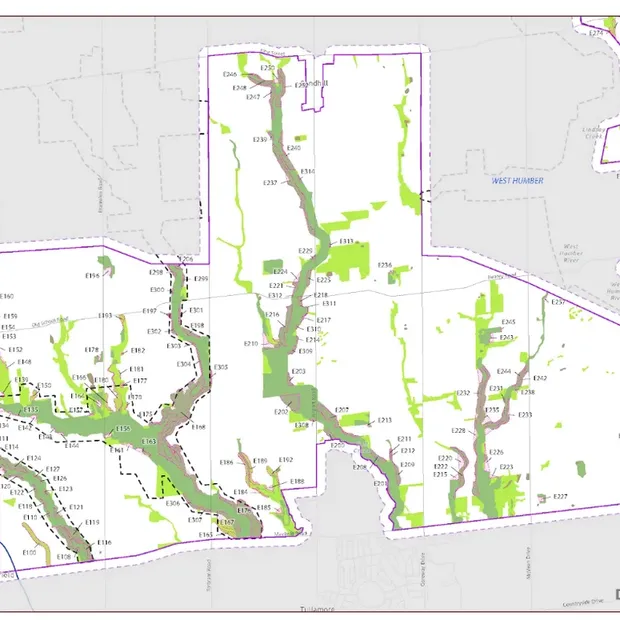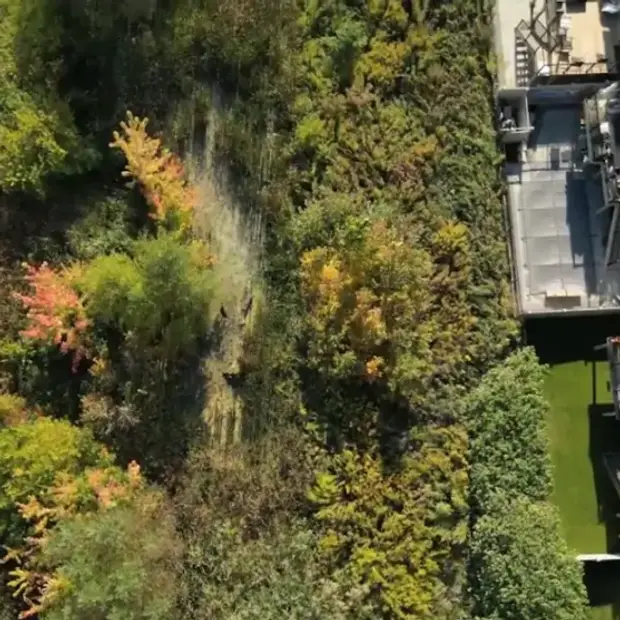Natural Heritage System and Policy Planning
Expert collaboration for environmental policy development and sustainable land-use planning is ready for you.
With more than half a century of combined experience in land-use and natural heritage policy development, we offer expert consultation for policy review, peer review and Ontario Municipal Board expert testimony.
We create defensible, transparent approaches grounded in science and guided by comprehensive stakeholder input.

A comprehensive approach to policy consultation
Dougan Ecology partners with multidisciplinary teams of engineers, planners and ecologists to contribute to environmental policy development. We contribute as experts on natural heritage, environmental monitoring, and terrestrial systems.
In order to make recommendations, our integrated team of landscape architects, ecologists, GIS-experts and project managers conducts comprehensive assessments, often including:
- Assessment of policy in the context of the Provincial Policy Statement and Official Plans for regional and municipal authorities
- Characterization of natural heritage features and functions
- Inventory of natural heritage resources through cutting edge GIS services and on-the-ground surveys
- Identification of significance thresholds and assessments of significance
- Development of context-specific principles and practices that facilitate sustainable planning

We use cloud-based technologies such as ArcGIS Online to work together with clients and stakeholders throughout each project. We follow up collaboration with custom reports, presentations or testimonies to advance sustainable policy development at the site-specific, municipal, and regional levels.
Let’s advance sound environmental policy that leads to sustainable land-use planning in Ontario, Quebec and beyond.
We position ourselves within the policy development framework for land-use and natural heritage planning because landscapes where people and biodiversity thrive are possible!
Let’s work together to realize a future where harmony with nature is a reality.

Frequently asked questions about natural heritage systems and policy planning
A Natural Heritage System is an interconnected network of forests, wetlands, meadows, and wildlife corridors that maintain ecosystem functions and support biodiversity. NHSs are defined by policy and mapping at the local, regional, or provincial level. They form the ecological backbone of environmental planning, guiding land-use decisions that support nature-based solutions and long-term climate adaptation.
NHS planning helps preserve ecological connectivity, protect Species-at-Risk, and buffer communities from the impacts of climate change and urban sprawl. It supports long-term environmental health, aligns with provincial policy (such as the PPS), and is foundational to sustainable development. Effective NHS planning ensures successful, resilient landscapes.
Geographic Information Systems (GIS) is a critical tool for NHS planning, allowing integration of ecological, hydrological, and land-use data. It enables precise mapping of natural heritage features and supports corridor analysis for species movement and ecosystem resilience. At Dougan Ecology, our GIS consulting team uses cloud-based platforms to collaborate with stakeholders, increasing transparency, accessibility, and efficient decision-making.
The Provincial Policy Statement (PPS) sets the planning framework in Ontario. It emphasizes protecting natural heritage features, conserving biodiversity, and integrating environmental considerations into all land-use decisions. It guides municipalities and developers in promoting balanced growth that preserves nature and ecosystem functions.
As a recognized ecological consultant, Dougan Ecology ensures compliance with the PPS by assessing feature significance, applying appropriate buffers, and preparing defensible EIS and policy documents. Our team integrates ecological fieldwork, policy analysis, and mapping to support tailored and successful natural heritage planning for all sectors, including commercial, residential, and industrial projects.
Peer review is the independent evaluation of technical studies (e.g., EIS, NHS reports, and ecological impact studies) to ensure scientific rigour and policy alignment. It supports credibility in decision-making, improves the quality of ecological reports, and ensures that environmental planning stands up to scrutiny in legal, municipal, or agency review settings.
